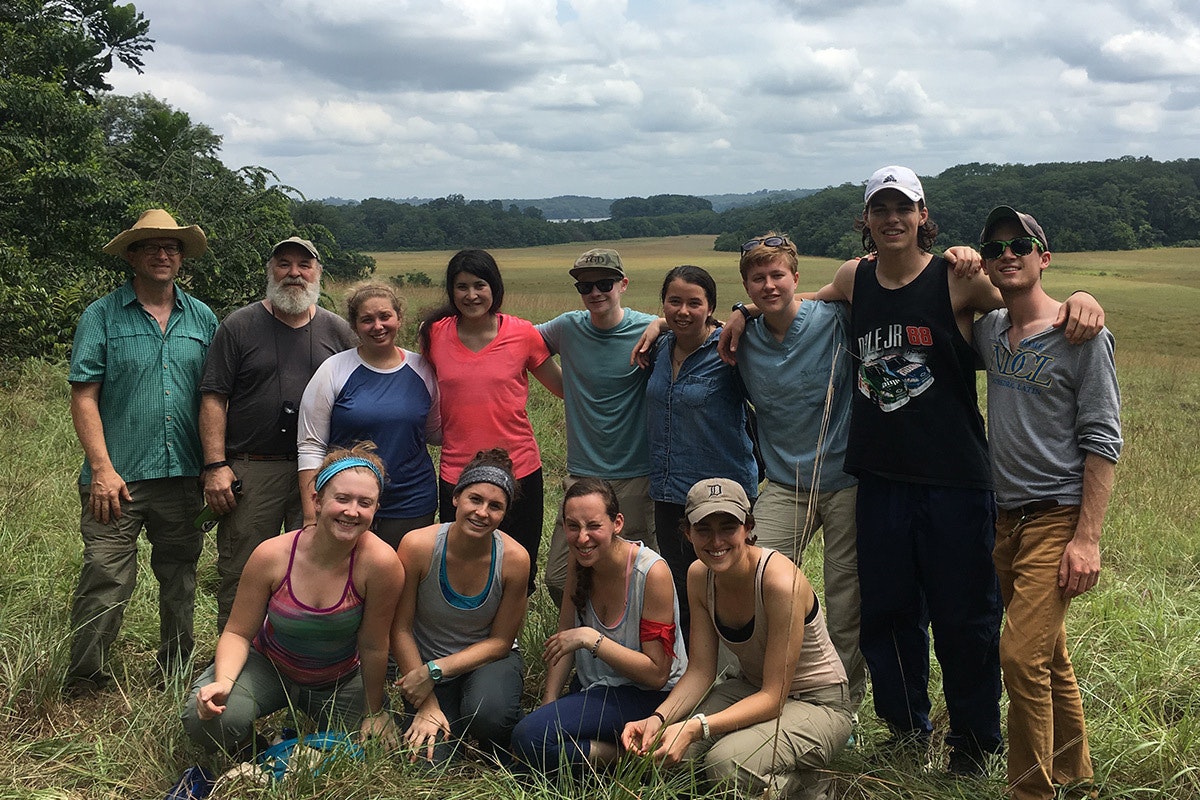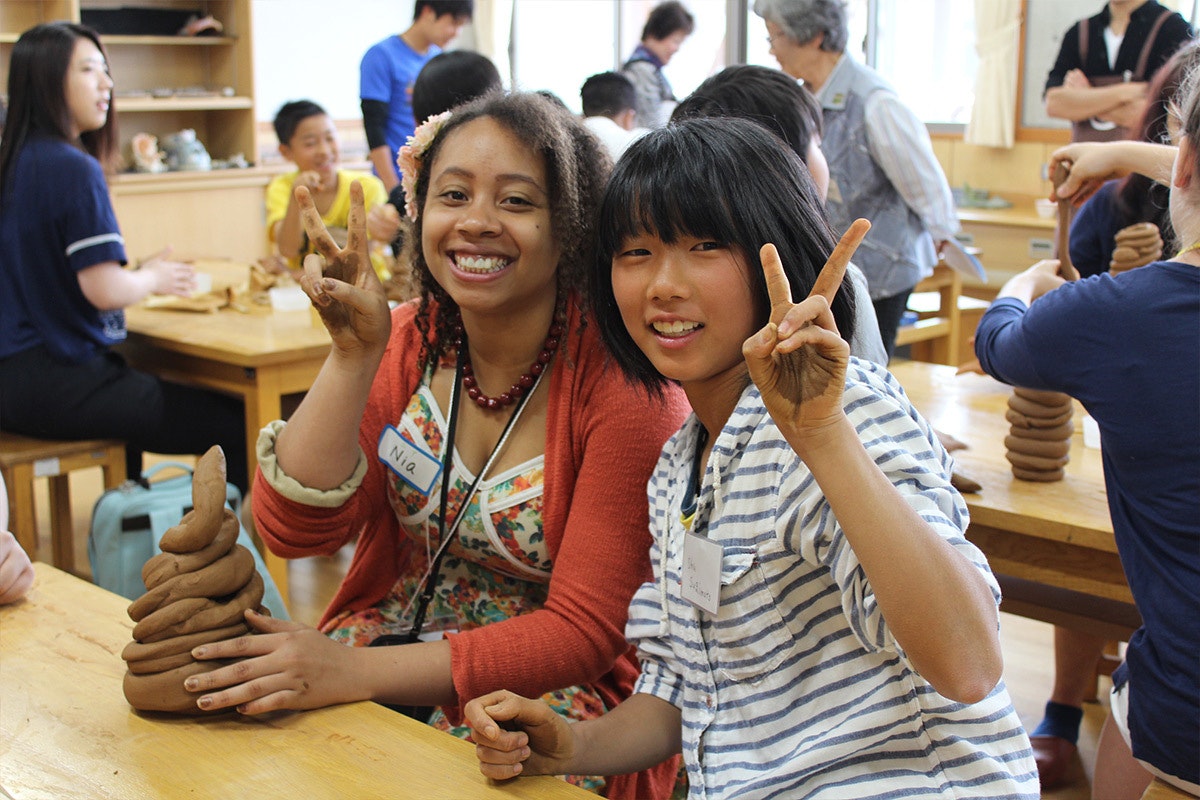Faculty-Led International Experiences
When artists and designers immerse themselves in the unfamiliarity of another culture, they gain new creative insights, develop global perspectives, and find deep inspiration that lasts a lifetime.
At the Stamps School of Art & Design, all undergraduate students are required to travel abroad to satisfy an International Experience requirement. No other U-M school or college requires education abroad, making it a true one-of-a-kind experience that unites the student body at Stamps.
“Students are encouraged to seek out new environments with the expectation that they'll return with intercultural skills and the ability to see things a different way,” says Sandy Wiley, Stamps Director of International Study Programs. “They come back more secure in their identity as an artist or designer.”
While students can satisfy the requirement in a number of ways, many students enjoy faculty-led programs such as professor Joe Trumpey's Eco-Explorers course. In May 2016, students in the Eco-Explorers course traveled to Gabon to partner with two rural villages to design and build projects including improved cook-stoves, beehives, solar lighting, and a prototype of a waterwheel to make a few volts of power. During the winter 2016 semester, Eco-Explorers honed their design methods, refined construction skills, and learned about the languages and cultures of Gabon. “Eco-Explorers does more than provide a hands-on opportunity to demonstrate making skills,” says Professor Joe Trumpey. “It shows students how to negotiate differences, adapt to unfamiliar situations, and embrace their independence.”

Also in May 2016, Stamps School of Art & Design Senior Lecturer Melanie Manos facilitated Art for Social Change: Japan, leading 13 Stamps students on a first-hand exploration of the role that art can play in improving the lives of individuals and fostering healthy communities. Stamps Students enjoyed a 16-day residency at Seinenryo, a campus for intellectually-disabled persons, where they created a site-specific installation using recycled plastic bottles and investigated nature and perception of physical and mental disability in society.
Additionally, students undertook a number of creative projects with communities they visited. In the ancient ceramics town of Shigaraki, Stamps students worked collaboratively with local artists on sculptural projects using locally sourced clay. The work explored themes of deep communication across language barriers and will be on view at the Shigaraki Ceramic Cultural Park in an upcoming exhibition curated by Hiroko Miura. At the Shumei Natural Agriculture Farm, students practiced the integration of art and life through traditional Japanese tea ceremony and tea-making. They also designed a beautifully colorful theatrical set for the international exhibition Japan X Taiwan X Hong Kong X Macau: Outsider Art Exhibition.

“The purpose of our field studies is to experience first hand the successful cooperation between schools, museums, governmental, and non-governmental organizations,” said Melanie Manos. “The hope is to gain inspiration and knowledge from our field studies in Japan that we can bring back to Michigan and reinvest in our own communities.”
Stamps International Experiences move students away from a voyeuristic mode of travel, encouraging an approach where students fully engage with the communities they visit. Because when artists and designers bring their skills to the community — along with a genuine openness to learning new ways of living and working — it can be a transformative experience for everyone involved.
Students taking faculty-led courses are required to contribute a blog where they upload photos and document their communal and personal experiences. To see their journey, visit the Eco Explorers and Art for Social Change: Japan course blogs.